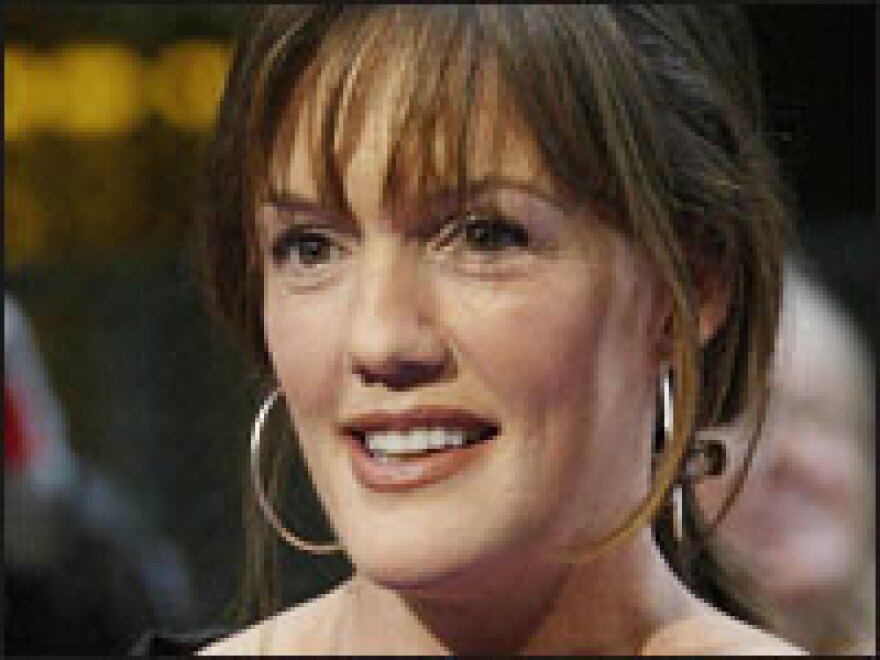Zoe Heller has no patience with what she calls the relatively new phenomenon of "relatability" in literature. She's already been chided by reviewers for not including obviously likable characters in her latest novel, The Believers. But Heller — rightly, I think — rolls her eyes at the dumbed-down midcult notion that every novel must contain an Atticus Finch in order to secure readers' attention.
Heller gambles on her readers' intelligence and wit, rather than baldly appealing to our feelings. The chilly social satire that Heller expertly executes in The Believers makes it a standout novel. She may not give us characters here to like, but Heller likes her readers enough to credit us with wider reasons for reading novels than just latching onto characters to identify with.
The Believers dissects the family of an elderly left-wing lawyer named Joel Litvinoff. Joel, like the late lawyer and activist William Kunstler, has devoted his life to defending radicals and subverting convention. One of his adult children recalls how Joel — an atheist, of course — would respond to invitations from friends whose children were making their bar or bat mitzvahs. "Joel made it a point to send back all invitations to such events with the words THERE IS NO GOD scrawled rudely across their engraved lettering."
At first, it seems as though The Believers is going to focus on Joel because, after all, he's something of a living legend. But, Joel is dispatched rather early in the novel: He's felled by a stroke and lingers, comatose, in a New York hospital while his wife and children must realign their orbits. Indeed (and this is the only flaw worth mentioning in The Believers), everyone's faith in Joel is rocked when it's discovered that he's had a long-term love affair with a woman who's borne their son, now 8. Don't guys like this — outsized, charismatic public figures — always have affairs and out-of-wedlock children? Joel's family shouldn't be all that aghast.
But finding that their secular socialist saint has clay feet, the family spins off in different directions.
Daughter Rosa, who's lived a fiercely ascetic life in Cuba for the past few years, has returned to New York and becomes drawn to — horror of horrors! — Orthodox Judaism.
Another daughter, Karla, is, figuratively speaking, the family punching bag. Overweight and unhappily married to a working class union organizer who alternately idolizes and derides her famous lefty family, Karla stumbles into a tentative affair with Khaled, an apolitical Egyptian immigrant who runs the newspaper stall in the hospital where she works.
Son Lenny is a perpetually recovering heroin addict who slowly discovers the disciplined pleasures of exercise and woodworking.
The most immensely satisfying stealth character in the novel, however, is Audrey, Joel's English wife, who's spent her life proudly in his shadow. Audrey has made a reputation for herself as a tart truth-teller. When a bighearted, rich friend suggests that, given Joel's vegetative state, the exhausted Audrey might want to join her on a trip — a Caribbean cruise, for instance — that Nation magazine organizes, Audrey snaps:
Audrey's relentlessly mean, if entertaining, attitude stirs up so many interesting questions in this acerbic novel of ideas: Is nastiness always a good indicator of insight? Is intelligence always a higher virtue than kindness? And please, The Believers warns, think twice about those knee-jerk answers, Gentle Readers. Maybe running off with the nonjudgmental, unread Khaled would make Karla happier for the nonce, but whatever are they going to talk about in the years to come?
By refusing to pander, to serve up even one likeable main character, The Believers also raises implicit questions about our readerly expectations about fiction. You may not make new imaginary friends by reading The Believers but, as consolation, this smart, caustic novel reminds readers that fictional friendship can be overrated.
Copyright 2023 Fresh Air. To see more, visit Fresh Air.





